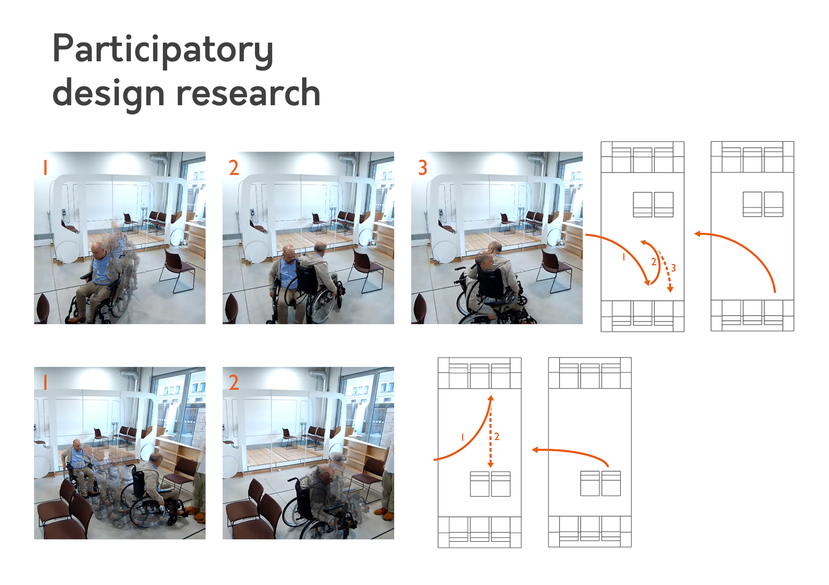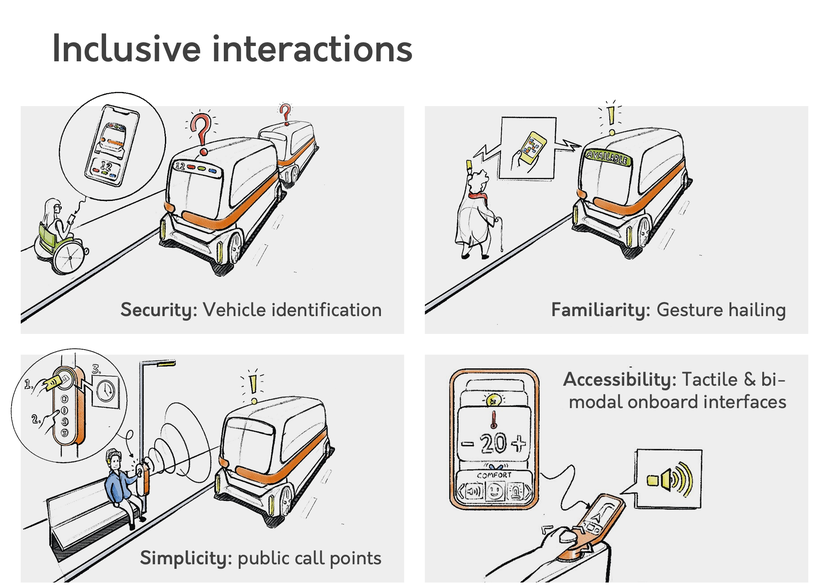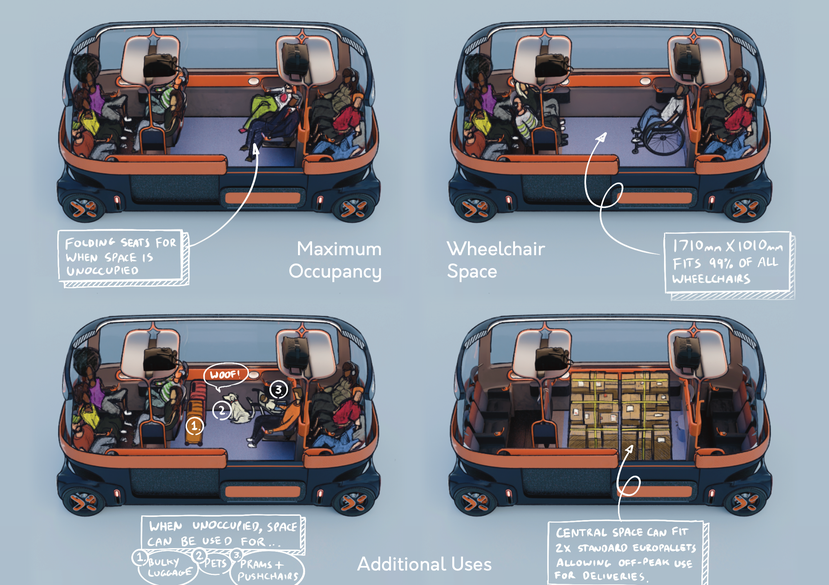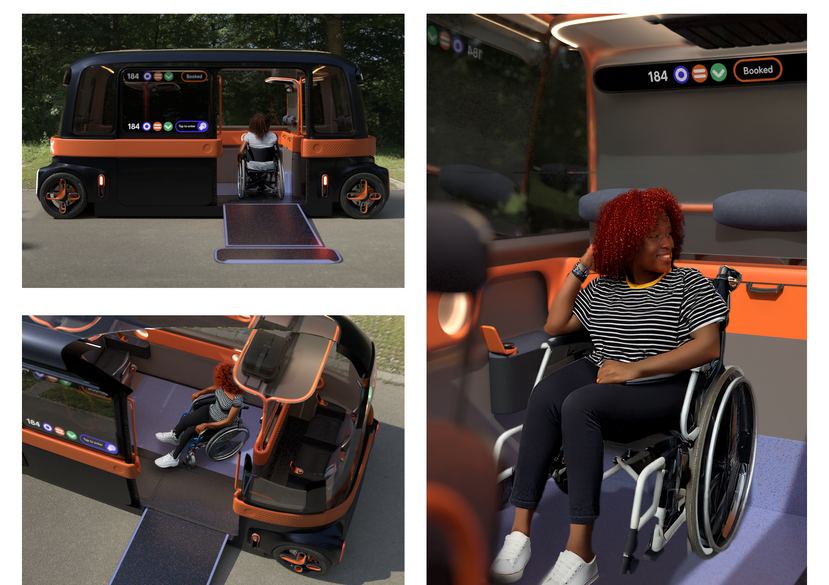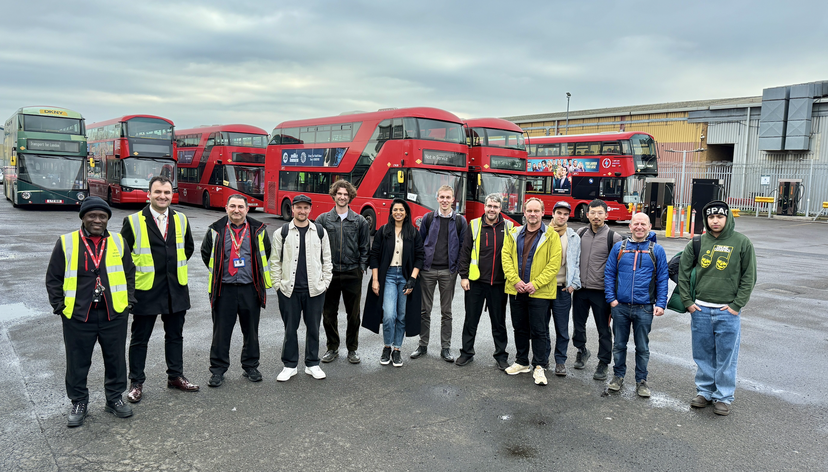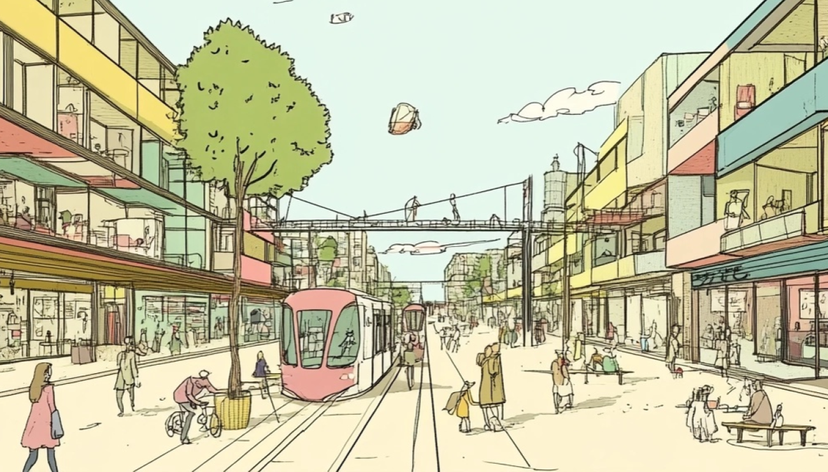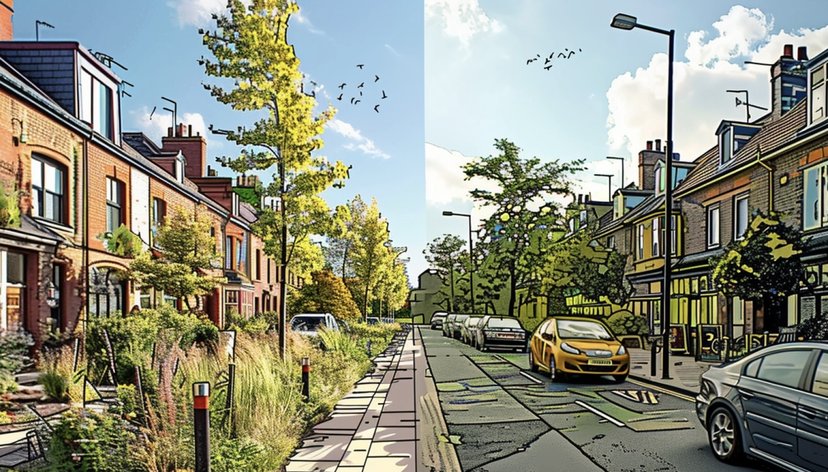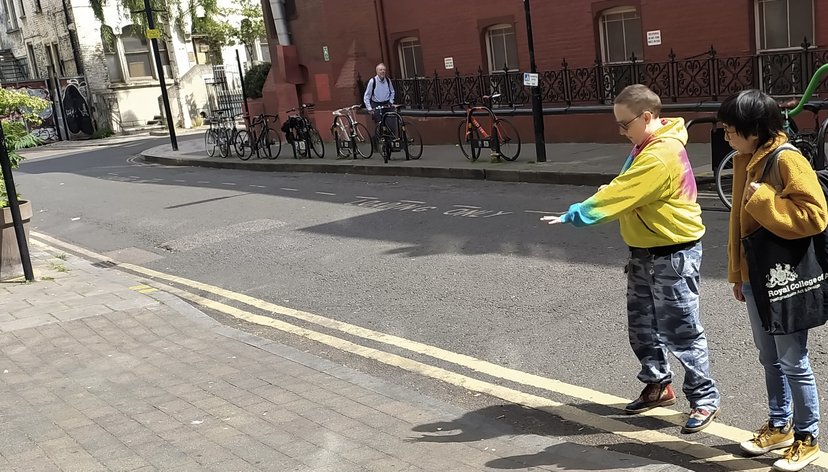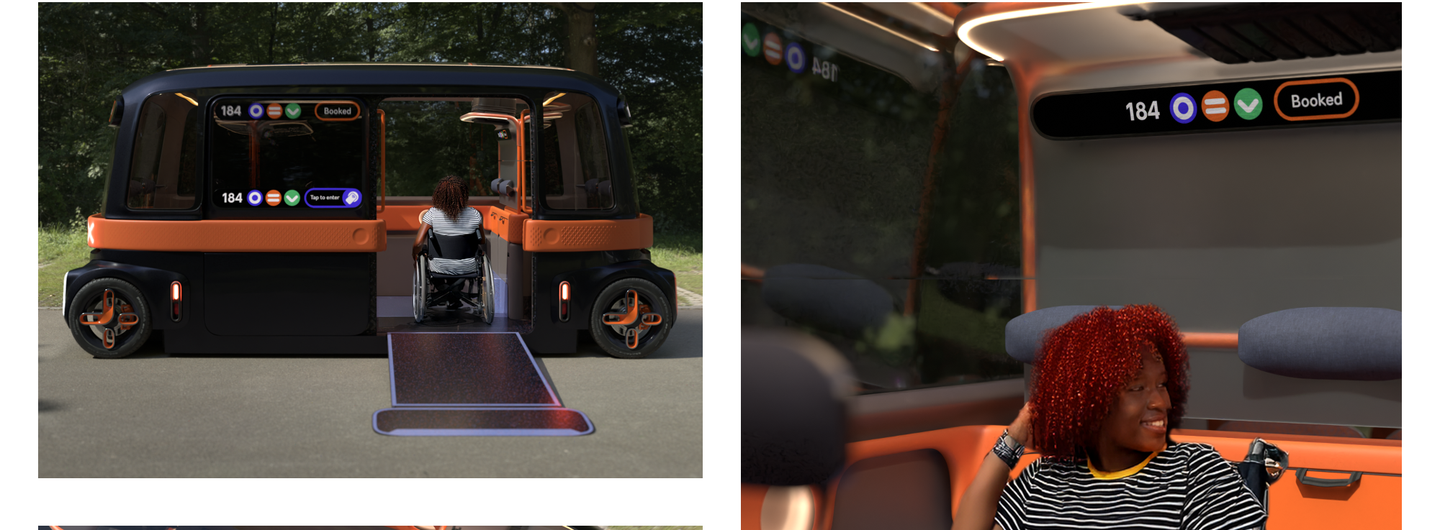
Exploring how inclusive design might ensure that shared autonomous vehicles provide an equitable mobility future for everyone.
At a glance
- The project developed a multi-dimensional framework for inclusive transport design, capturing the diverse groups and specific types of exclusion experienced within mobility systems.
- Exploratory co-design workshops engaged directly with older people, disabled individuals, and women, utilising physical mock-ups and virtual reality to uncover their unique mobility needs.
- The research produced a holistic, industry-relevant vehicle and service design concept countering exclusion across vehicle architecture, interior layouts, exterior design, and digital information systems.
Key details
Gallery
More information
The challenge
The emergence of Shared Autonomous Vehicles (SAVs) offers an unprecedented opportunity to rethink transport systems and address long-standing mobility inequities. However, without early and deliberate consideration of the whole population's needs, these rapid technological advancements could easily perpetuate the transport exclusion already experienced by many—or even create entirely new barriers. Transport exclusion currently impacts diverse groups across the spectrum of age, disability, and gender, severely curtailing access to employment, education, and healthcare. For many, the existing transport landscape remains highly inaccessible and insecure. The core challenge of this research was to ensure that as society transitions to automated mobility, accessibility is not simply retrofitted as an afterthought. Instead, emerging barriers must be anticipated, embedding inclusive design from the very inception of SAV development.
What we did
The project utilised an inclusive design-led, action research approach to understand and respond to the mobility needs of excluded groups. The methodology centred on collaborative co-design, ensuring that those with lived experiences of transport exclusion were integral to the process. Exploratory and focused workshops were conducted with older people, disabled individuals, and women. To help participants envisage future SAV scenarios, full-scale physical mock-ups, 3D-printed tactile models, and virtual reality environments were created. This allowed participants to physically enact journeys, evaluate interior layouts, and co-create practical solutions. Alongside these workshops, interviews with automotive engineering experts and surveys of industry professionals ensured the resulting designs were technically feasible. Ultimately, these qualitative insights were translated into actionable design responses, yielding a holistic SAV configuration that integrates inclusive vehicle architecture with accessible, secure, and multimodal interactions.
Outputs
Thesis:
Severs, R. (2025) ‘Advancing Autonomy for All:
Countering future transport exclusion through the inclusive design of shared autonomous vehicles.’
Design Document:
Severs, R. (2025) ‘Designing Autonomy for All’
Other publications:
Severs, R., Wu, J., Diels, C., Harrow, D., Singleton, J., et al. (2022) ‘Imagining an Inclusive Future for Shared Autonomous Vehicle Interiors: A Participatory Design Workshop Study’, Adjunct Proceedings - 14th International ACM Conference on Automotive User Interfaces and Interactive Vehicular Applications, AutomotiveUI 2022. ACM, pp. 73–78. Available at: https://doi.org/10.1145/3544999.3554787.
Severs, R., Wu, J., Diels, C., Harrow, D. and Winsor, R. (2022) ‘Inclusive Shared Autonomous Vehicles: Identifying areas for inclusive design intervention’, 11th
Inclusive Design Conference Helen Hamlyn Centre for Design Conference Proceedings. London: Helen Hamlyn Centre for Design, pp. 170–187.
Severs, R., Wu, J., Diels, C., Harrow, D. and Uhlarik, M. (2022) ‘Side-Stepping Future Transport Exclusion via an Expanded Inclusive Design Approach’, in G. Bruyns and H. Wei (eds) [ ] With Design: Re-inventing Design Modes. Singapore: Springer Nature Singapore, pp. 1876–1891.
Lead

Robin Severs
PhD Student
Robin is a designer and researcher specialising in inclusive and human-centred mobility. His expertise lies in understanding how services, infrastructure, information, and vehicles interact to shape the experiences of all passengers. His work focuses on anticipating and mitigating exclusion in emerging mobility technologies, particularly shared autonomous vehicles and electric vehicle infrastructure. By translating the lived experiences of marginalised groups into practical design solutions, he aims to help create future transport systems that are accessible and equitable for everyone.

